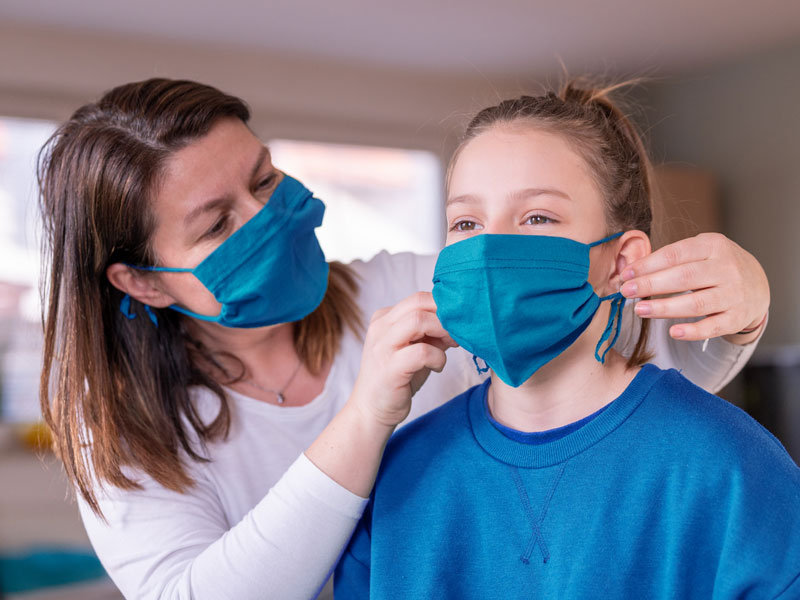By: Carrie Schaeffer, LCSW
Caregiving for a loved one who is ill or frail is a full-time job that can be stressful under the best circumstances. Now, during the COVID19 crisis, caregivers are finding themselves coping with the daily needs of their loved one and dealing with the stress and isolation of a global pandemic. Below are some practical tips to help caregivers during these uncertain times.
1. Stay informed
Knowledge is power. Keep yourself and your loved one up to date on current guidelines and protocols. The Centers for Disease Control and Prevention (CDC) provides frequently updated information on COVID19 including symptom checklists, guidelines for getting tested, and tips for wellness. https://www.cdc.gov/
2. Stay healthy
Keep yourself and your loved one well by practicing good hygiene and wearing protective wear while outside your home. Wash your hands often, keep hand sanitizer with you when you are not at home, and disinfect surfaces in your home frequently. Wear a face covering when you are around people and maintain at least 6 feet of distance between others. Consider socializing with others outside rather than inside your home.
3. Get practical support
Look for ways to take advantage of practical support so that you can conserve your energy and avoid being in public too often. Many grocery stores and pharmacies deliver goods to your home. When you need a break from cooking, have a meal delivered by a local restaurant.
4. Create a routine
Creating and committing to a routine can give your day structure and purpose. Work with your loved one to plan time for meals, entertainment, rest and exercise. If you are exercising outside in your neighborhood, pay attention to the times during the day when there is less foot traffic so that you can maintain social distancing.
5. Engage your loved one
Find ways to keep your loved one feeling engaged. Simple activities such as working on a puzzle or coloring can reduce stress and create space for meaningful conversations. If you share a hobby, work on a project together. Cook a family recipe together or spend time with family photographs and movies. If they are unable to do so for themselves, read a book to them. Encourage friends and family members to send email messages or cards to your loved one so that they feel supported and connected to the outside world.
6. Plan for emergency
Creating an emergency plan with your loved one can help reduce stress for both of you. Stock up on non-perishable food items and water and keep a variety of over-the-counter medications and medical/first-aid supplies at home. Identify an emergency contact and make sure they are aware of the plan and can remain easily accessible to you and your loved one.
7. Care for yourself
Taking good care of yourself is vital when you are caregiving for a loved one. You must be in good health physically and emotionally to effectively care for someone else. Maintain a healthy diet and sleep regimen. Utilize online exercise programs to relieve stress and stay fit. Rest when your loved one is resting. Build “breaks” into your routine so that you have some time for yourself. Consider talking to a mental health professional via a telehealth appointment to process the stress you may be feeling and get a different perspective and guidance from someone else.
8. Manage stress
Stress builds up when you are caring for a loved one, so it is important to find ways to manage it. Use simple breathing techniques for quick stress relief. Develop a daily yoga or mindfulness practice using online programs for more significant stress reduction. Write or draw about your experience and thoughts in a journal to help you process and release negative emotions.
9. Connect with others
Though social distancing is important during this time, avoid becoming isolated. Arrange to visit with friends and family outside if possible. Acquaint yourself with technology to visit with others through video conferencing using a phone, tablet, or computer. Join an online community through social media or your local library to discuss books or hobbies. Find an online caregiver support group to talk to others with a shared experience. Many organizations offer disease-specific, online support for caregivers.

10. Ask/allow for help
Asking for help can be difficult and uncomfortable for caregivers. But, when you allow others to help you, you receive much-deserved respite from the full-time job of caregiving, and you give others the gift of lending support to someone they care for. Allow a neighbor to pick up some groceries for you. Ask a younger family member to help you with technology. Take a friend up on their offer to come to your home while you run an important errand when needed.
For more information, the following websites may be helpful.
Alzheimer’s Association – https://www.alz.org/
American Cancer Society – https://www.cancer.org/
Family Caregiver Alliance – https://www.caregiver.org/
National Alliance on Mental Illness – https://www.nami.org/home
Rosalynn Carter Institute for Caregiving – https://www.rosalynncarter.org/









